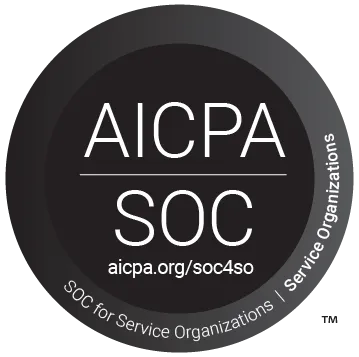Despite being the country’s capital, Washington D.C. doesn’t crack the Top-20 of largest American cities by population. However, it has the second-busiest metro system in the country–keep reading for everything you and your employees need to know to get riding.
Does DC have a transit benefit mandate for employers?
Yes. Since January 1, 2016 when the Sustainable DC Act of 2014 (DC Commuter Benefits Law) went into effect, most DC-area employers are now required to provide their employees with the opportunity to set aside a certain amount of their income pre-tax to cover commuting expenses.
Unlike other cities with similar laws, DC’s comes with fines to ensure compliance.
Who is affected by the DC Commuter Benefits Law?
The DC Commuter Benefits applies to all employers who:
- Have 20 or more full-time employees.
- Are located within the District of Columbia.
- Are either for-profit organizations or non-profit organizations.
Within those employers, the DC Commuter Benefits Law applies to both full-time and part-time employees who either:
- Perform 50% or more of their work in the District of Columbia, or
- Have employment based in the District of Columbia, perform a substantial amount of work in the District, and perform less than 50% of their work in another state.
What’s required of employers under the DC Commuter Benefits Law?
DC employers must offer one or more of the following transportation benefit programs to comply with the DC Commuter Benefits Law.
- A pre-tax transit benefit. Through these programs, employees can set cash (up to $315 a month in 2024) aside from their paycheck to be used towards transit.
- An employer-paid pass. Employers can provide a transit pass to employees at no cost to the employee. As long as the value is below the federal monthly limit for transportation fringe benefits ($315 a month in 2024), this pass is not taxed as income on the employee.
- Employer-provided transportation. If the employer offers a shuttle or vanpool at no cost to the employee, that program meets the requirements of the DC Commuter Benefits Law.
Employers must also follow noticing requirements to avoid paying fines. To ensure employees can reasonably find information about their program options, employers must:
- Notify employees of the available transit benefit program using email, memos, newsletters, etc.
- Inform employees as to how to apply for and receive the transit benefit, as well as how to submit a complaint to the Department of Employment Services.
- Provide a point of contact for covered employees to learn more about their transit benefits.
Employers must also maintain records to show that they’re in compliance with the DC Commuter Benefits Law for a minimum of three years, and be responsible for providing that documentation to the Department of Employment Services upon request.
goDCgo has more information about compliance requirements on their website. See the full text of the law, too.
What kinds of pre-tax benefits satisfy the requirements of the DC Commuter Benefits Law?
Qualified employers can offer eligible employees the opportunity to set up to $315 a month aside from their paycheck to be used towards transit. These funds must be used to purchase a transit pass. Transit passes are defined as “any pass, token, fare card, voucher, or similar item entitling a person to transportation on public transit.”
For DC employees, eligible transit passes include those for:
- bus, streetcar, or train by the Washington Metropolitan Area Transit Authority
- Maryland Area Regional Commuter
- Virginia Railway Express
- the National Railroad Passenger Corporation (Amtrak)
Pre-tax transit funds cannot be spent on:
- Capital Bikeshare membership or individual CapBike rides
- Buying or maintaining a personal bicycle
- Taxis, Uber, Lyft or other ride-hailing services
- Parking, including at transit stations
Employers have the option to offer pre-tax parking as well, but it is not required in DC.
What are the penalties for non-compliance?
Employers can be fined for not offering a qualified transit benefit. Fines are calculated per employee and per month. If any eligible employee goes a full calendar month without being offered any transit benefits, the employer is fined $100 per impacted employee. The fines are doubled on second, third, and fourth offenses.
- $100 for the first month
- $200 for the second month
- $400 for the third month
- $800 for the fourth and all subsequent months
Can employers receive passes in bulk, or discounted passes from DC’s transit agencies?
While WMATA does not offer discount passes for employers, they do have programs to allow employers to buy bulk passes and distribute them to their employees. You can read more here.
Why are commuter benefits good for employers?
- Employers can reduce their payroll taxes because the payroll set aside for pre-tax transit benefits are not taxable income. Payroll deductions save employers directly.
- Pre-tax benefits make employers more competitive for top talent.
- Commuter benefits make employers more willing to embrace return-to-office mandates.
- Incentivizing transit usage reduces demand for parking, which can be expensive for employers to provide.
- Pre-tax transit benefits are a relatively low cost, high impact, and demonstrable commitment to carbon reduction and environmental sustainability. Jawnt can help you measure and report the carbon your organization is saving by supporting transit.
Want to learn more?
Jawnt’s team of transit planners and benefit administrators are available to help you understand your options, requirements, and find a solution that will satisfy employers and employees alike. Drop us a line today to get started.









.png)
.png)


